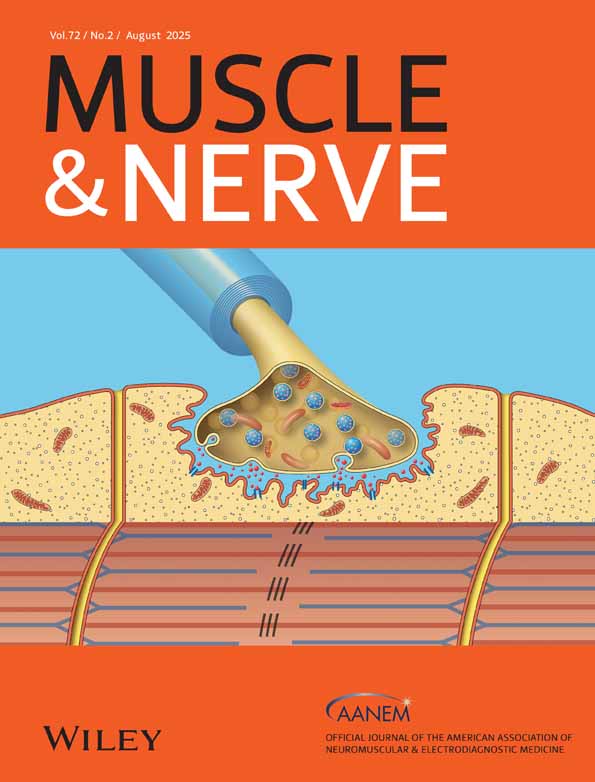Quinine Sulfate for Muscle Cramps in Amyotrophic Lateral Sclerosis: A Randomized, Double-Blind Crossover Trial
Funding: This work was supported by Swiss ALS foundation Hänseler AG.
ABSTRACT
Introduction/Aims
Many patients with amyotrophic lateral sclerosis (ALS) experience muscle cramps during the course of the disease. This study aimed to evaluate the efficacy of orally administered quinine sulfate for muscle cramps in ALS patients.
Methods
We conducted a randomized, double-blind, placebo-controlled crossover trial in ALS patients experiencing daily muscle cramps. After a two-week run-in period, patients were assigned to receive 250 mg quinine sulfate once daily, followed by a placebo or vice versa. Each treatment period lasted 2 weeks and was followed by a 4-week washout period. Patients used a daily diary to rate muscle cramp intensity on the numeric rating scale (NRS) and record muscle cramp frequency. The primary outcome measure was change in cramp intensity; coprimary outcome measures were number of muscle cramps during daytime and nighttime.
Results
Data from four women and three men were included in the analysis, all of whom reported a notable reduction in cramp intensity and frequency, leading them to continue the medication. Quinine sulfate was well-tolerated, with two patients reporting mild tinnitus.
Cramp intensity was significantly reduced by 48% (p = 0.042). Further, the number of daytime muscle cramps declined significantly (p = 0.024).
Discussion
Our findings suggest the potential efficacy of quinine sulfate in reducing muscle cramp intensity and frequency in ALS patients. However, the small sample size (n = 7) limits generalizability. Larger, multicenter studies are needed to confirm these results and fully assess its safety, serious adverse events, and therapeutic potential.
Conflicts of Interest
Charlotte Vogt and Ursula Schneider have no conflicts of interest to disclose. Christoph Neuwirth has received consultant fee/speaker honorary from the following companies: Biogen USA, Biogen Switzerland, Roche Switzerland, Mitsubishi Tanabe Pharma, Sanofi Genzyme, Argenx, Alexion. Markus Weber has received funding from the following companies: Abbvie, Novartis, Biogen, Mitsubishi Tanabe, Argenx, Biologix, Genpharm, Allmiral, Neuaxpharm, Zambon. However, these relationships were unrelated to the current study and had no influence on the study's design, execution, results, or interpretation.
Open Research
Data Availability Statement
The data that supports the findings of this study are available in the Supporting Information of this article.




